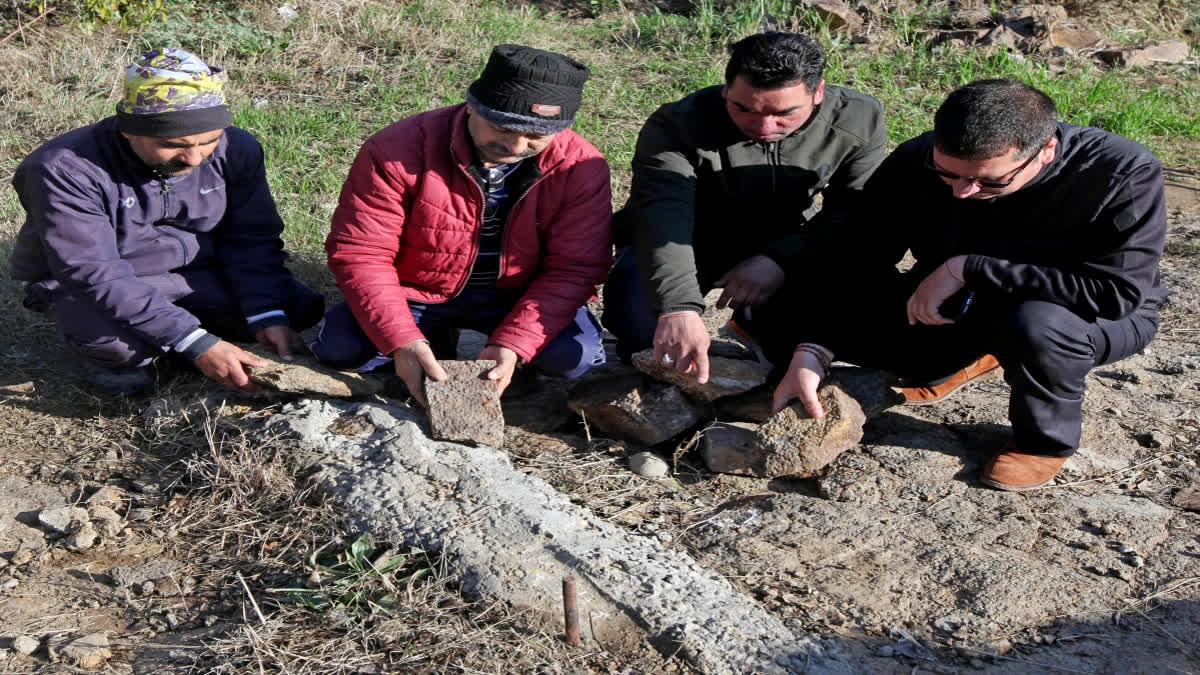Srinagar (Jammu and Kashmir): In a significant setback, Jammu and Kashmir's second attempt to auction mining rights for its newly discovered lithium reserves received no bids, officials said. The government first identified lithium deposits in the region in February 2023, estimating reserves at 59 lakh metric tons.
After failing to secure the required minimum of three bids in the initial auction in November 2023, the block was re-auctioned in March, this year, with a bid deadline of May 14. An official source, requesting anonymity, indicated that the block would likely be assigned to a government agency for further exploration.
With an increasing global focus on lithium for electric vehicle batteries, India has been seeking to secure lithium assets domestically and abroad. In June last year, the Indian government listed 30 minerals, including Lithium, Nickel, Titanium, Vanadium, and Tungsten, as critical to its clean energy goals. In March, Jammu and Kashmir relisted its lithium reserves for auction as part of the third tranche.
According to the Ministry of Mines, seven critical mineral blocks have been put up for auction as a composite license in this tranche. "These seven mineral blocks are auctioned under the second attempt of auction as per sub-rule 10 and sub-rule 11(b) of rule 9 of the Mineral (Auction) Rules 2015. The notice inviting tender (NIT) has been published on the MSTC e-auction portal and the Ministry of Mines website," stated the ministry in March 2024.
The blocks pertain to critical minerals such as glauconite, graphite, nickel, PGE, potash, lithium, and titanium in Bihar, Jharkhand, Tamil Nadu, Uttar Pradesh, and the Union Territory of Jammu and Kashmir. The Geological Survey of India (GSI) discovered lithium reserves in J&K last year, identifying inferred resources (G3) of 59 lakh metric tons in the Salal-Haimana area of the Reasi district.
Salal, located 23 kilometers from Reasi's district headquarters and surrounded by mountains, is home to the Salal Hydroelectric Power Station, a 690 MW run-of-the-river hydropower project on the Chenab River. The project benefits states including Uttar Pradesh, J&K, Punjab, Haryana, Delhi, Himachal Pradesh, Chandigarh, and Rajasthan.
Salal is also situated en route to the Chenab railway bridge, the world's highest railway bridge, standing 35 meters taller than the Eiffel Tower. Indian Railways recently completed a trial run on the bridge.
J&K Mining Secretary Amit Sharma, in February 2024, claimed that local people, regardless of skill level, would be involved in this anticipated project. He stated that the lithium found in Salal is of high quality and available in large quantities, with a grade of 500 parts per million (PPM), compared to the normal grade of 220 PPM. With reserves of 59 lakh metric tons, India could surpass China in lithium availability.
Lithium is crucial for manufacturing EV batteries, wind turbines, and solar panels. A World Bank study predicts the demand for critical metals like lithium will rise by nearly 500 per cent by 2050.
In September 2023, PDP president and former Jammu & Kashmir Chief Minister Mehbooba Mufti accused the BJP of exploiting Jammu and Kashmir's natural resources to benefit "crony capitalists" in response to the planned auction of lithium reserves.
Former Jammu & Kashmir Chief Minister and Vice President of J&K National Conference Omar Abdullah, however, had expressed cautious optimism, stating, "If lithium extraction benefits J&K in terms of resources and revenues, then there is nothing like it. Unfortunately, our experience with water resources has not been great. Most power projects have been built by central undertakings, and electricity is exported. We hardly get anything."



